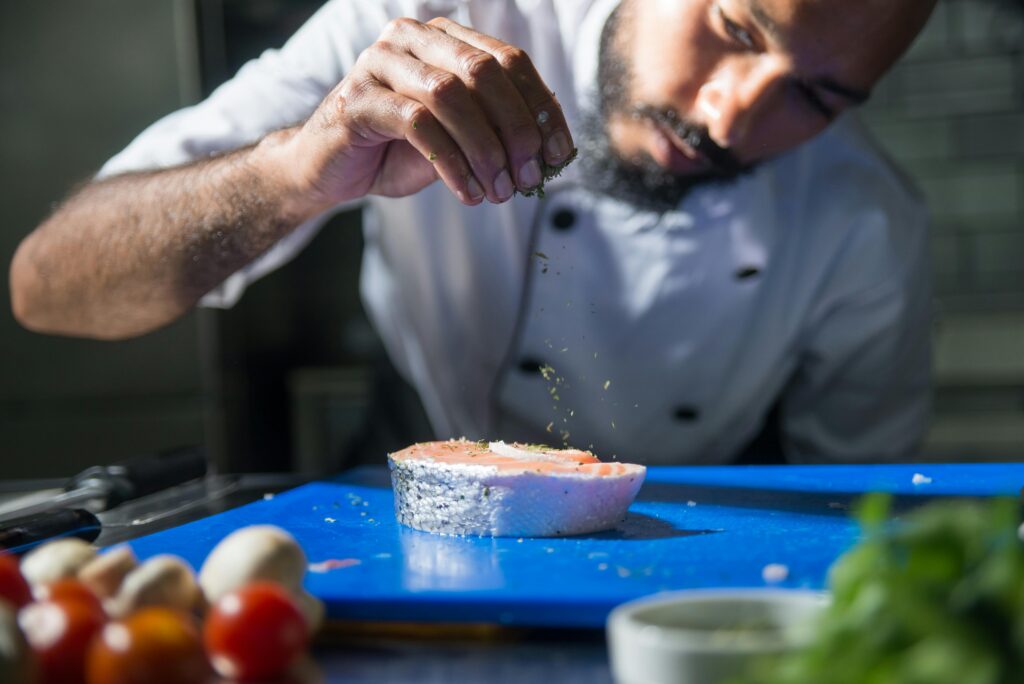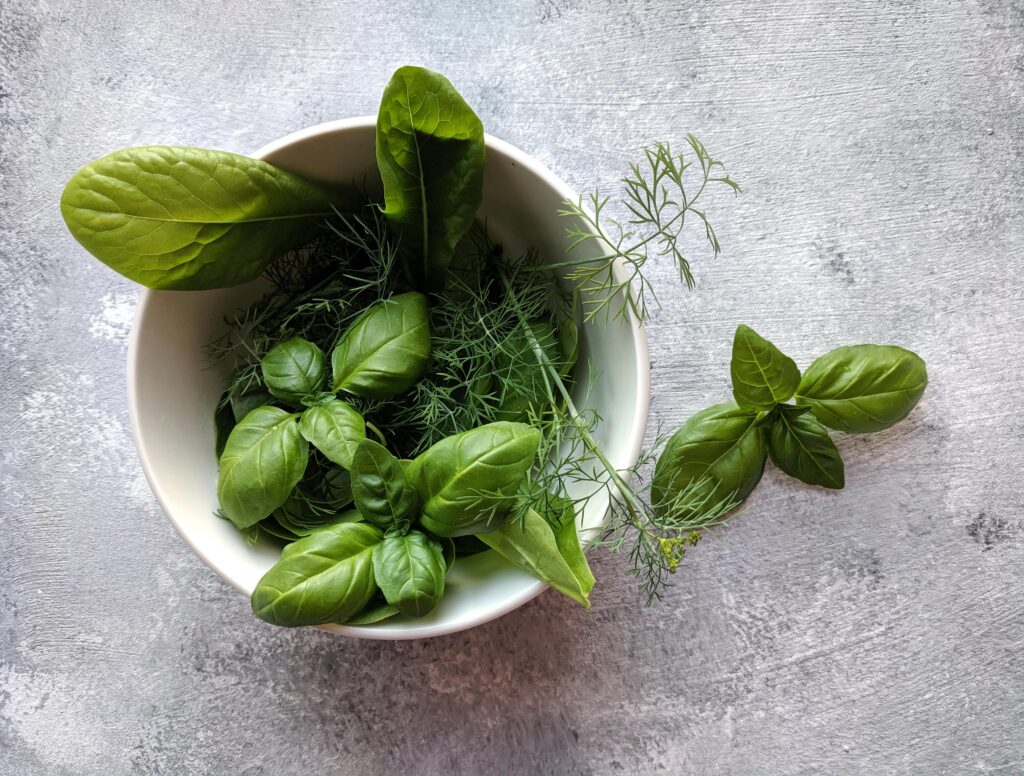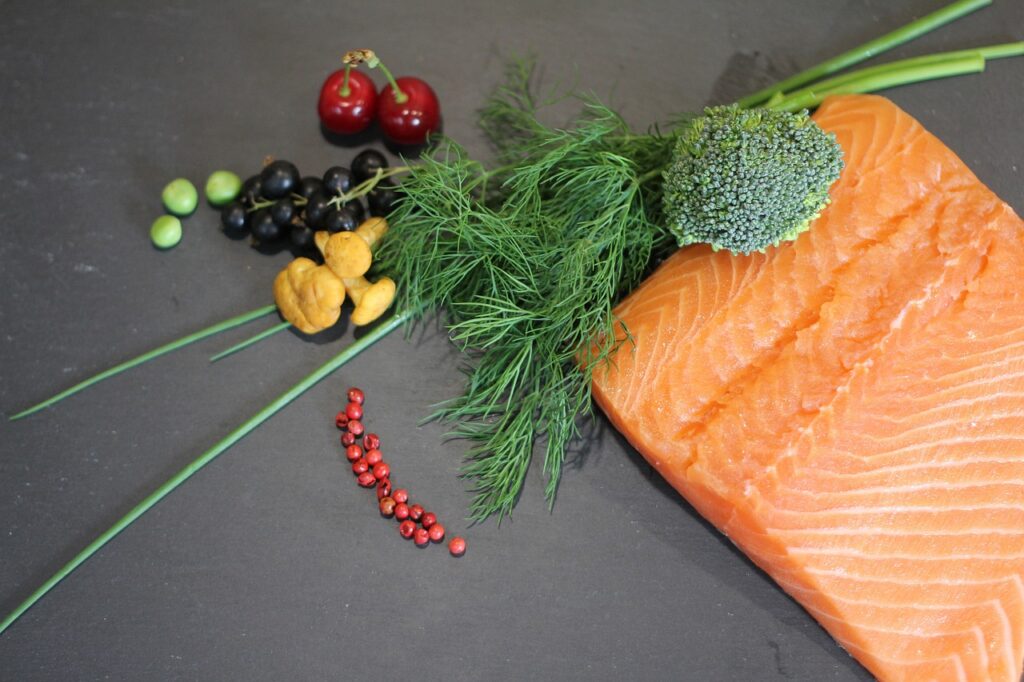Why Grilled Salmon with Herbs is a Culinary Delight
Grilled salmon with herbs stands as a timeless culinary treasure, celebrated for its rich flavors, versatility, and health benefits. This dish marries the delicate, smoky essence of grilled salmon with the vibrant aroma of fresh herbs, making it a standout choice for both casual meals and fine dining experiences.
Table of contents
Health Benefits of Salmon
Salmon is a nutritional powerhouse, offering an abundance of health benefits that make it a staple in many diets worldwide. It is rich in high-quality protein, which supports muscle growth and repair, and is an excellent source of omega-3 fatty acids. These essential fats are renowned for promoting heart health by reducing inflammation, lowering blood pressure, and improving cholesterol levels. Salmon also contains a wealth of vitamins and minerals, including vitamin D, B-complex vitamins, and selenium, which collectively support immune function, energy production, and bone health.
Incorporating salmon into your diet is associated with cognitive health benefits as well, thanks to its omega-3 content. These fats are crucial for brain function, helping to improve memory and reduce the risk of neurodegenerative diseases. The low-calorie, nutrient-dense profile of salmon makes it a guilt-free indulgence that nourishes the body while satisfying the palate.
Versatility of Herbs in Cooking

Herbs play a pivotal role in elevating the flavors of grilled salmon, adding depth, complexity, and a touch of freshness to the dish. From classics like dill and parsley to bold choices like rosemary and thyme, the variety of herbs available allows for endless customization to suit individual tastes.
- Dill enhances the delicate flavor of salmon with its light, grassy notes, making it a popular choice for marinades or as a garnish.
- Parsley, with its fresh and slightly peppery taste, complements the smoky undertones of grilled salmon.
- Thyme and rosemary bring a robust, earthy quality that pairs beautifully with the caramelized edges of the fish.
- Cilantro and basil, on the other hand, add a bright, citrusy twist, ideal for those who enjoy vibrant, zesty flavors.
Herbs also bring their own set of health benefits to the table. Many are rich in antioxidants and bioactive compounds, aiding in digestion, reducing inflammation, and enhancing overall well-being. The versatility of herbs ensures that each preparation of grilled salmon can be a unique culinary experience, tailored to individual preferences and dietary needs.
Selecting the Perfect Salmon
Choosing the right salmon is the first step in creating a mouthwatering grilled dish. The type, quality, and freshness of the fish greatly influence the final flavor and texture.
Wild vs. Farm-Raised Salmon
Wild-caught salmon is prized for its robust flavor and firm texture. It’s typically leaner and more nutrient-rich than farm-raised varieties. On the other hand, farm-raised salmon is often more affordable and has a milder taste, making it suitable for those new to salmon dishes. Your choice ultimately depends on your flavor preferences and budget.
Freshness Indicators
To ensure you’re working with the freshest salmon, look for clear, bright eyes if purchasing a whole fish. The flesh should appear vibrant and moist, not dull or dry. Additionally, it should have a clean, ocean-like smell with no overpowering fishy odor.
Best Salmon Cuts for Grilling
When grilling salmon, opt for cuts like fillets or steaks, as they hold up well on the grill. Skin-on fillets are especially recommended since the skin acts as a barrier, preventing the fish from sticking and helping retain moisture during cooking.
The Essential Herbs for Flavorful Grilled Salmon
Grilled salmon becomes a masterpiece when paired with the right herbs. The fresh, aromatic qualities of herbs enhance the fish’s natural richness, creating a dish that is both flavorful and nutritious. Whether you prefer classic flavors or adventurous combinations, herbs play a key role in elevating grilled salmon.
Classic Herbs: Dill, Parsley, Rosemary
Certain herbs are timeless choices for seasoning salmon. Dill, with its light, grassy flavor, is a classic match that highlights the fish’s delicate taste. Parsley adds a fresh, slightly peppery note, enhancing both flavor and presentation. For a more robust, earthy profile, rosemary is an excellent choice, especially when grilled salmon is paired with hearty sides like roasted potatoes.
Pairing Herbs for Optimal Flavor Combinations

Combining herbs can create unique and harmonious flavor profiles. For a refreshing blend, try pairing cilantro and lime zest, which bring a zesty brightness to grilled salmon. To achieve a Mediterranean vibe, mix thyme, oregano, and a hint of garlic. For a bold and smoky undertone, rosemary and thyme work beautifully together, especially when paired with a touch of olive oil and lemon.
Experimenting with herb combinations allows you to tailor each dish to your preferences, ensuring that every bite of grilled salmon is bursting with flavor.
Step-by-Step Guide to Grilling Salmon
Grilling salmon is an art that combines technique and timing to achieve a delicious, perfectly cooked meal. Follow these steps to master the process and elevate your grilled salmon to perfection.
Preheating the Grill
Start by preheating your grill to medium-high heat, around 375–400°F (190–200°C). This ensures an even cooking surface that helps to prevent sticking and allows for a consistent sear. Lightly oil the grates or use a non-stick spray to further minimize sticking, especially for delicate salmon fillets.
How to Achieve the Perfect Sear
Place the salmon on the grill with the skin side down if it has skin. This protects the flesh from direct heat and helps achieve a crisp, flavorful skin. Let the salmon cook undisturbed for 4–6 minutes to form a beautiful sear. Avoid flipping too soon, as this could cause the fish to stick or break apart. When ready, gently flip the salmon using a wide spatula to cook the other side for another 2–4 minutes.
Maintaining Moisture During Grilling
To keep salmon moist, brush it lightly with olive oil or a marinade before grilling. You can also cover the salmon with a foil tent for part of the cooking time to lock in moisture. Grilling over indirect heat and removing the salmon as soon as it reaches an internal temperature of 135–140°F (57–60°C) will ensure a juicy, tender result. Let the salmon rest for a few minutes after grilling to allow the juices to redistribute.
With these steps, you can consistently achieve grilled salmon that is beautifully seared, flavorful, and perfectly moist.
Common Mistakes to Avoid When Grilling Salmon
Grilling salmon can be straightforward, but avoiding a few common pitfalls is key to achieving a flavorful and perfectly cooked dish. Here are the mistakes to watch out for and how to prevent them.
Overcooking the Salmon
One of the most frequent errors is overcooking salmon, which can result in a dry, tough texture. Salmon cooks quickly, often in just 8–12 minutes, depending on the thickness. To avoid overcooking, use a food thermometer and remove the fish from the grill when the internal temperature reaches 135–140°F (57–60°C). Remember that salmon will continue to cook slightly after being removed from the heat, reaching perfect doneness during the resting period.
Skipping the Resting Period
Another common mistake is skipping the resting period after grilling. Resting allows the juices to redistribute throughout the fish, ensuring it remains moist and flavorful. Cutting into the salmon immediately after removing it from the grill can cause the juices to run out, leaving the fish dry. Let the salmon rest for 3–5 minutes before serving to lock in its moisture and enhance its flavor.
By being mindful of these mistakes, you can ensure your grilled salmon turns out tender, juicy, and delicious every time.
The Most Popular Salmon and Herb Recipe

Lemon Herb Grilled Salmon
A widely loved recipe for grilled salmon combines the fresh flavors of lemon and herbs for a simple yet exquisite dish. This classic recipe is celebrated for its ease of preparation and its ability to highlight the natural richness of the salmon.
Ingredients
- 4 salmon fillets (6 oz each)
- 2 tablespoons olive oil
- Juice of 1 lemon (plus lemon slices for garnish)
- 2 cloves garlic, minced
- 2 tablespoons fresh dill, chopped
- 1 tablespoon fresh parsley, chopped
- 1 teaspoon fresh thyme leaves
- Salt and freshly ground black pepper, to taste
Instructions
- Prepare the Marinade
In a small bowl, whisk together olive oil, lemon juice, garlic, dill, parsley, thyme, salt, and pepper. - Marinate the Salmon
Place the salmon fillets in a shallow dish or resealable plastic bag. Pour the marinade over the fillets, ensuring they are well coated. Allow the salmon to marinate in the refrigerator for 15–30 minutes. - Preheat the Grill
Preheat the grill to medium-high heat (about 375–400°F / 190–200°C). Lightly oil the grates to prevent sticking. - Grill the Salmon
Remove the salmon from the marinade and place it skin-side down on the grill. Discard the remaining marinade. Grill the salmon for 4–6 minutes on the first side, then carefully flip and grill for another 2–4 minutes, or until the internal temperature reaches 135–140°F (57–60°C). - Serve and Garnish
Remove the salmon from the grill and let it rest for 3–5 minutes. Garnish with lemon slices and additional fresh herbs, if desired. Serve immediately with your favorite sides.
This lemon herb grilled salmon recipe strikes the perfect balance of zesty, savory, and aromatic flavors, making it a go-to choice for casual dinners and special occasions alike.
Frequently Asked Questions About Grilled Salmon with Herbs
1. How do I prevent my grilled salmon from sticking to the grill?
To prevent sticking, ensure that the grill is well-oiled before cooking. You can use a paper towel dipped in oil to lightly coat the grates. Also, try placing the salmon skin-side down first to create a barrier between the fish and the grill. Using a fish basket or grilling foil can also help keep the salmon intact.
2. What herbs pair best with salmon on the grill?
Herbs like dill, thyme, rosemary, parsley, and basil complement salmon beautifully. Fresh or dried herbs can be sprinkled directly on the fish or mixed into a marinade for extra flavor. A combination of lemon and dill is a classic pairing for grilled salmon.
3. How do I know when my grilled salmon is done?
Salmon is done when it reaches an internal temperature of 125–130°F (52–54°C) for medium-rare or 140°F (60°C) for well-done. The fish should easily flake with a fork when it’s ready. Keep in mind that salmon continues to cook slightly after removing it from the grill.
4. Can I marinate salmon before grilling?
Yes, marinating salmon before grilling is a great way to enhance its flavor. A marinade of olive oil, lemon juice, garlic, and fresh herbs works wonderfully. Aim to marinate for 15-30 minutes for maximum flavor without overpowering the fish.
5. How do I prevent overcooking my salmon on the grill?
To avoid overcooking, monitor the heat of the grill carefully. Grill over medium heat (around 350°F or 175°C) and avoid direct flames. Use a thermometer to check the internal temperature of the salmon, and remember that fish cooks quickly, usually within 6–8 minutes per side depending on thickness.
6. Can I use frozen salmon for grilling?
Frozen salmon can be grilled, but it’s best to thaw it first for even cooking. If you’re in a rush, you can grill salmon directly from frozen, but it may take a bit longer to cook. Make sure to season it well and keep the heat moderate to avoid drying it out.
Conclusion
Grilled salmon with herbs is more than just a meal—it’s a celebration of flavors, health, and culinary creativity. The delicate, smoky taste of grilled salmon combined with the aromatic freshness of herbs creates a perfect harmony that can be tailored to suit every palate. With its impressive nutritional benefits, including heart-healthy omega-3s and essential vitamins, salmon is a guilt-free indulgence that nourishes the body as well as satisfies the senses. Whether you opt for classic pairings or experiment with new herb combinations, grilled salmon remains a versatile and timeless dish that promises both taste and nutrition in every bite. Perfect for any occasion, it is a true culinary delight that continues to be a favorite around the world.

